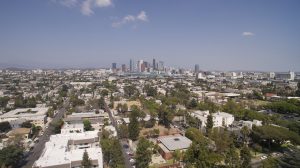
Home Affordability in the USC Area
In 2006, when USC began planning its new mixed-use “Village” development, the UNIDAD Coalition ––a group of community-based organizations in South Central–– arose to ensure
Variable Definitions:
Foreclosures: The number of foreclosed housing units in a given area
Source:
Los Angeles Housing Department
Years Available:
2014-2024
Methodology Note:
The original data comes at the point level. Our team geocoded the locations to generate X/Y coordinates, then spatial joined each point to 2020 Census Tracts.
Foreclosures
Foreclosure happens when a homeowner is unable to make mortgage payments on their property, allowing the lending institution to seize the property and evict the homeowner. High foreclosure rates are considered indicators of housing crises. Nearly 1,000 foreclosures per day occurred in 1933 during the Great Depression, which led to the introduction of government actions aimed at refinancing unpaid mortgages. Foreclosure activity rose by 81% during the Great Recession in 2008, which prompted moratoriums during the COVID-19 pandemic to protect renters and homeowners.
Citation:

In 2006, when USC began planning its new mixed-use “Village” development, the UNIDAD Coalition ––a group of community-based organizations in South Central–– arose to ensure

According to the Economic Policy Institute (EPI), 8.4 million jobs have been lost since the start of the pandemic in February 2020, and over 5 million people

Across the nation, the population experiencing homelessness is getting older. The end of the Baby Boomer generation (those born between 1955 and 1964) have faced
